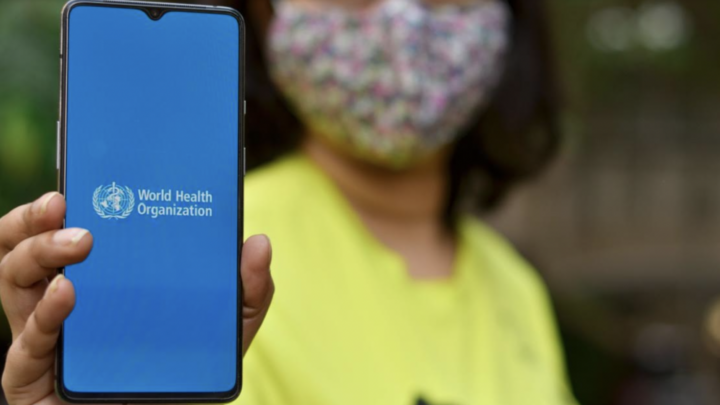
Just as ‘State of Emergency Powers’ enacted by Governments in Australia during the Covid-19 pandemic ease, there’s a push for emergency control occurring on a global scale, led by the World Health Organisation (WHO).
Currently the WHO is seeking to have the 194 members of the World Health Assembly adopt amendments to the International Health Regulations (IHR).
WHO also wants to introduce a ‘Pandemic Treaty’.
The initial draft documents suggest that if accepted, these changes will increase WHO’s funding, and also give WHO sweeping powers – making its health proclamations mandatory for member nations.
Introduction of the Digital Health Certificate
This will create a new global bureaucracy, and reduce the independence of nations to make their own decisions in response to future public health threats.
WHO also wants to introduce an International Digital Health Certificate.
At the G20 Summit this year, the twenty participating world leaders also signed a declaration to introduce vaccine passports for their respective jurisdictions, with the stated intention of creating a global verification system to facilitate safe international travel.
Neither idea has been explained in any real detail, but the end result is that any such global health certificate / vaccination passport not only further erodes personal privacy, it also severely impacts civil liberties as we know them, along with human rights.
Many believe that the ‘right to life’ also means the right to take care of ourselves, to make our own personal decisions with regard to our bodies.
WHO wants to dictate the rules
If you can remember anything about the way Governments here in Australia acted during the pandemic, you will remember the distinct lack of regard for civil liberties and human rights displayed in public health policies such as mandated vaccinations, lockdowns, curfews and border closures, all heavily monitored and controlled by heavy handed policing, arrests, harsh fines, and, in some instances, the threat of jail time.
Now consider the potential for this level of control on a global scale.
Lack of public awareness and consultation
Alarmingly for Australians, the Federal Department of Health has admitted that it is partaking in the WHO process – negotiations are already well underway – being conducted without any public consultation, and a distinct lack of public awareness.
It’s concerning that our politicians seem, so far, to be content with the fact that such important international considerations are not being openly discussed with the ‘ordinary everyday people’ they will impact the most.
This is perhaps not surprising given the general culture of secrecy that surrounds reporting and data relating to Australia’s pandemic response, or the significant number of laws that have been introduced in recent years (not related to Covid).
Erosion of freedoms and legal safeguards
Our democratic rights and freedoms have been slowly eroded over time with the introduction of a number of pieces of legislation, brought in under the guise of ‘national security’ which negatively impact our privacy and our freedoms.
By contrast, the UK Parliament has been urged not to sign anything, until a public referendum is held, and to act only on the basis of the results of the referendum.
The need for scrutiny
The WHO’s argument for changes to the IHR and the need for a ‘Pandemic Treaty’ is that it will address the majority of the ‘response gaps’ indicated by the COVID-19 outbreak, while striving to consider the simultaneous revision of the International Health Regulations (IHR) which still retain their force as a legal instrument of global pandemic governance.
WHO argues that a ‘coordinated international response’ will be the best way to deal with any future health threat.
That’s certainly an idea that most people would agree with.
However, a coordinated international response can be set up without the need for binding principles and certainly does not need to take away the individual sovereignty of national governments to make decisions on behalf of their own citizens.
Any such international treaty or agreement should – must – be completely transparent, include robust processes to prevent unilateral control and have definitive ‘sunset’ clauses, so that if there is to be one body in charge of a future health threat, the term as ‘leader’ has clear boundaries and a firm date for cessation.
What also must be considered here is whether this response (like much of the Covid-19 response by individual governments) is based on a real threat or a perceived one, or whether it is simply a grab for power at a time when people feel vulnerable – the memory of Covid-19 and its impact is still fresh for all of us.
Giving over control
It is never a good idea to give authorities too much power, or to hand over power without considering the implications – it can always be misused, on purpose or inadvertently.
Just look how easy it was for Scott Morrison to appoint himself to several ministries during his tenure as Prime Minister, and to keep this secret for several months.
As the old saying goes, ‘hindsight is always 20/20’ but by the time hindsight becomes obvious significant damage can have been done, damage that cannot always be undone.
All Australians deserve more information about the WHO’s proposal and the opportunity to have a say. That’s how democracy is supposed to work.
Source – https://www.sydneycriminallawyers.com.au/blog/a-pandemic-treaty-may-be-on-its-way/
